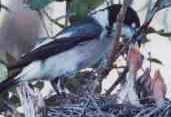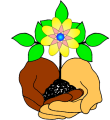Year Of The Bat - Bats Are Our Allies
Bat Pollinators: Tequila and the Tree of Life
More than 1,200 species of bats comprise nearly a quarter of all mammals, and their ecological services are essential to human economies and the health of whole ecosystems worldwide. Without bats, costly crop pests would increase, forcing greater reliance on dangerous pesticides. We could also lose some of our favorite foods and beverages and suffer the consequences of greatly diminished biodiversity.
Many of our most important foods come from bat-dependent plants. These include bananas, plantain, breadfruit, peaches, mangos, dates, figs, cashews and many more. In fact, in an average tropical food market, approximately 70 percent of the fruit sold comes from trees or shrubs that rely heavily on bats in the wild. Some such as the famous durian, still rely on bat pollinators even in commercial orchards. This king of Asian fruits sells for a billion dollars annually, but could be lost without healthy populations of its bat pollinators.
(Copyright for all the photographs in this article belong to Dr Merlin Tuttle, Bat Conservation International, www.batcon.org)

In East Africa nectar feeding bats are essential to fruit production of the Baobab tree, sometimes referred to as the African Tree of Life due to the exceptional variety of wildlife that depend on it for food and shelter. Recently, it has additionally become known as the Vitamin Tree. Baobab fruits contain six times as much vitamin C as oranges, twice as much calcium as milk, are rich in other vitamins and antioxidants and may soon become a billion dollar a year crop.
In deserts, from the southwestern United States to southern Peru, more than 100 species of cactus and agave plants rely on bats for pollination. Giant, columnar cactus plants, such as the famous saguaro and organ pipe, are heavily relied on for food and shelter by a wide variety of birds and mammals, and agaves are extremely useful in erosion control, as ornamentals and as the source of all tequila liquor. The world’s thirsty Margarita drinkers can definitely raise a glass in praise of bats.
Bats: Nature’s natural pesticide
Bats also provide an essential ecosystem service known as “biological control.” Natural pests and diseases are usually regulated by a wide range of predators and parasites. TEEB has found that agricultural pests cause significant economic losses worldwide. Globally, more than 40% of food production is being lost to insect pests, plant pathogens, and weeds, despite the application of more than 3 billion kilograms of pesticides to crops, plus other means of control.3 Natural control of pests is to date one of the most effective means of dealing with these threats. Bats are essential predators which keep many damaging insects from destroying crops.*
The colony of 20 million free-tailed bats that lives in Bracken Cave near San Antonio, Texas, for example, consumes 200 tons of insects nightly, predominantly crop pests such as corn earworm and armyworm moths. Just one of these bats can catch enough moths in one night’s feeding to prevent 50,000 or more eggs from being laid, resulting in local cotton growers saving close to a million dollars annually in reduced need for pesticides.
(Copyright for all the photographs in this article belong to Dr Merlin Tuttle, Bat Conservation International, www.batcon.org)

A single mouse-eared bat (widespread in Europe and North America) can capture 1,000 or more mosquito-sized insects in just one hour. A colony of 150 big brown bats, a number that could live in a backyard bat house, can capture enough cucumber beetles in a summer to prevent them from laying 33 million eggs that would otherwise hatch into corn rootworms, a billion-dollar-a -year pest in the United States.
In many locations, bats can be easily attracted to bat houses to help protect gardens and organic farms. Outstanding success has been reported from Oregon to Georgia in the United States, probably because many of our worst insect pests listen for bat echolocation signals and flee areas where bats are heard. A pecan grower in Georgia reports having become entirely organic since he attracted thousands of bats to extra large bat houses in his orchard. So the next time you think organic, think “bats.”

 del.icio.us
del.icio.us Digg
Digg Facebook
Facebook Google
Google Google+
Google+ LinkedIn
LinkedIn MySpace
MySpace Ping This!
Ping This! SlashDot
SlashDot StumbleUpon
StumbleUpon Twitter
Twitter Yahoo
Yahoo



